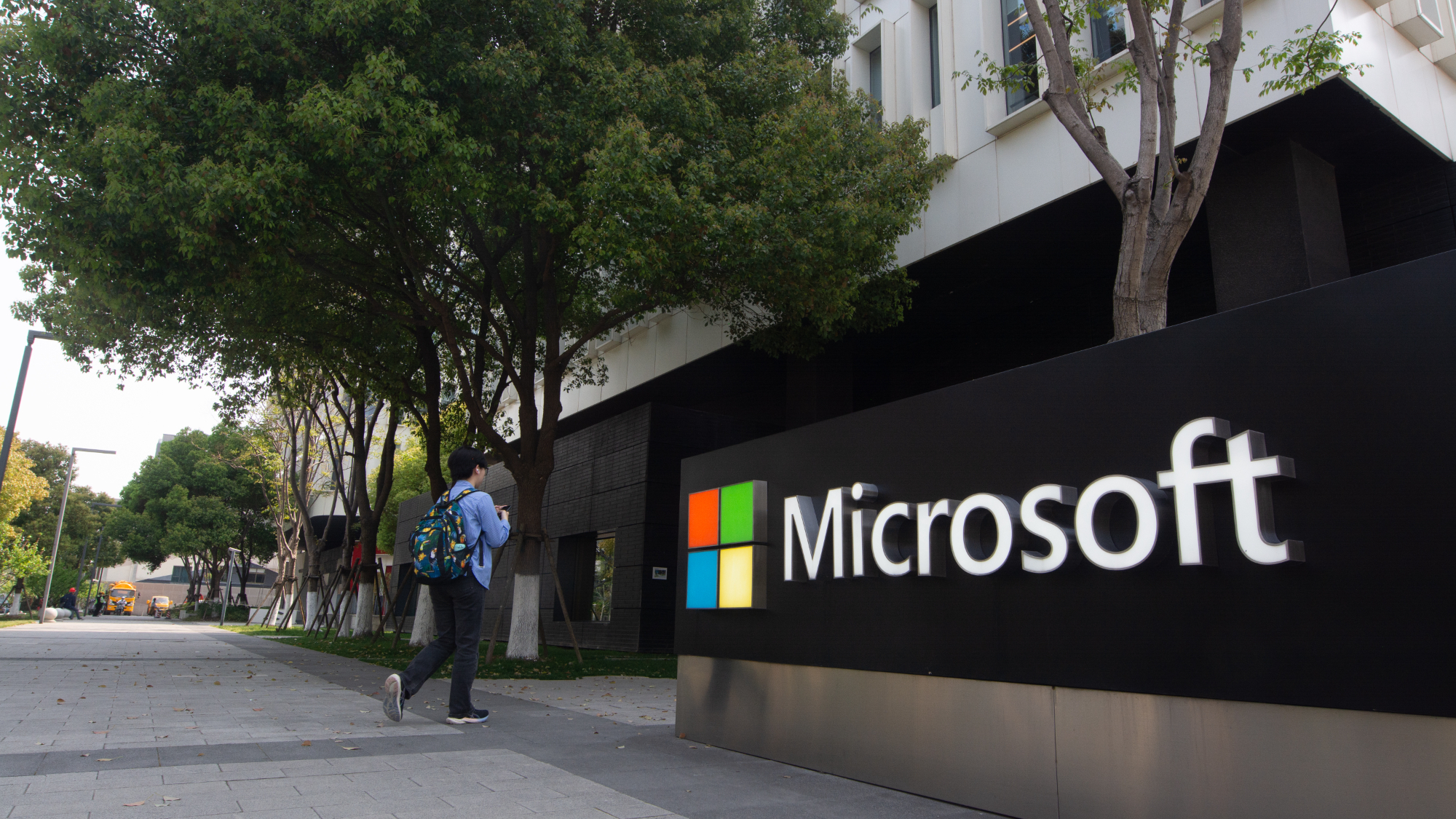Microsoft's own AI chip delayed six months in major setback — in-house chip now reportedly expected in 2026, but won't hold a candle to Nvidia Blackwell
Things are apparently not going well

A new report claims that despite having spent years designing its own AI chips, Microsoft's first in-house silicon offering has been delayed by six months. Furthermore, when it finally does launch in 2026, it will reportedly fall short of the performance of Nvidia's Blackwell chips, according to The Information.
A new report claims Microsoft's chip is taking much longer than expected, which will amplify the gulf in performance to Nvidia Blackwell, making them even less competitive by the time the chips go into production.
The chip, code-named Braga, has reportedly been delayed by at least six months, pushing mass production into next year. According to inside sources cited in the report, the chip is "expected to fall well short of the performance of Nvidia’s flagship Blackwell chip," which came out last year.
In the fast-moving world of AI, it's a huge blow for Microsoft, which wanted to deploy the chip in its data centers this year. According to the report, people from the project blame unanticipated design changes, staffing constraints, and high turnover as the reasons for the delay.
While Nvidia remains the industry leader in the field, Microsoft, as well as Google, Amazon, and beyond, are all working to develop in-house silicon to reduce their reliance on Nvidia. As the report notes, Nvidia seems unperturbed by the efforts, CEO Jensen Huang going so far as to suggests that many rival chip projects would be abandoned by big tech companies, asking "What’s the point of building an ASIC if it’s not going to be better than the one you can buy?”
If the latest reports of Microsoft's chip delay are true, Huang might just be proved right. Per the report, Microsoft has been working on a chip since 2019 and revealed Maia 100 in 2023. The 128-core Arm CPU was expected to show up in data centers in early 2024. Unfortunately, the chip has mostly been used for internal testing rather than real-world usage, and Microsoft sources reportedly claimed the chip isn't being used to power any of Microsoft's AI services. This is largely because the chip, conceived prior to OpenAI's ChatGPT revolution, is designed for image processing, not generative AI and LLM use.
Microsoft is reportedly working on three chips behind the scenes, dubbed Braga, Braga-R, and Clea, targeting data center deployment in 2025, 2026, and 2027, respectively. The delay of the former casts doubt on whether Microsoft will meet this ambitious launch target. The Information reports that all three chips are designed for inference — a separate chip designed for training AI models was reportedly cancelled in early 2024.
Get Tom's Hardware's best news and in-depth reviews, straight to your inbox.
One of the aforementioned changes to design was a shift to include new features at the behest of OpenAI, a move that apparently made the chip unstable during simulations and set the project back several months. Microsoft didn't adjust the deadline, despite the setback, and the team was reportedly under so much stress that one-fifth of the people on some teams have reportedly left.
Microsoft allegedly won't have chips to compete with Nvidia's offerings until 2027, the Clea variant of its Maia chip, with the company lagging behind Nvidia massively in the meantime. Naturally, this also doesn't factor in any major leaps Nvidia makes in the meantime.
Follow Tom's Hardware on Google News to get our up-to-date news, analysis, and reviews in your feeds. Make sure to click the Follow button.

Stephen is Tom's Hardware's News Editor with almost a decade of industry experience covering technology, having worked at TechRadar, iMore, and even Apple over the years. He has covered the world of consumer tech from nearly every angle, including supply chain rumors, patents, and litigation, and more. When he's not at work, he loves reading about history and playing video games.
-
John Nemesh Whoever at MS thought this was a good idea needs to be fired. Why on EARTH would a software company start designing AI chips when they have ZERO experience with chip design???? Moronic.Reply -
Notton I found the "high turnover rate" part hilarious.Reply
That's the one thing you should never do when designing a chip from the ground up.
You only fire engineers after the product is complete, not before, lol. -
EzzyB Reply
They already have their own ARM-based chips in production for their datacenters.John Nemesh said:Whoever at MS thought this was a good idea needs to be fired. Why on EARTH would a software company start designing AI chips when they have ZERO experience with chip design???? Moronic. -
John Nemesh Reply
Yeah, that's not at all similar. And modifying a LICENSED design and making tweaks isn't remotely the same as designing a new chip architecture from the ground up.EzzyB said:They already have their own ARM-based chips in production for their datacenters. -
Xaction Interesting reporting since the original date floated for these chips last year was 2026, not 2025Reply -
phead128 Reply
Are you saying only hardware companies with chip manufacturing experience should design chips?John Nemesh said:Whoever at MS thought this was a good idea needs to be fired. Why on EARTH would a software company start designing AI chips when they have ZERO experience with chip design???? Moronic. -
alrighty_then MSFT stock down just 0.45% today...so this news is either inaccurate or no one cared. Meanwhile NVIDIA and MSFT continue to compete to be the most insanely profitable companies to invest in - and I'm loving it.Reply
I was disappointed that MSFT did so well with the Surface line then stopped innovating, (to avoid competing with partners I suppose). Their hardware efforts are hit-and-miss but some of the hits are/were impressive (Xbox, Surface, HoloLens). -
Pierce2623 Reply
Yeah but building a CPU with ARM cores is different from building an AI accelerator. Quite different.EzzyB said:They already have their own ARM-based chips in production for their datacenters. -
umeng2002_2 The common denominator is people are tired of buying from nVidia™. How Nintendo is still doing business with them is beyond me.Reply -
atmapuri If deepSeek has show that you can achieve a 10x speed up with software optimization, why are people so keen on making hardware?Reply
Hardware development is projected to cost less than software optimization?
Or only programmers in China cost less?